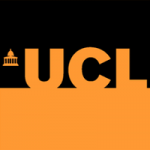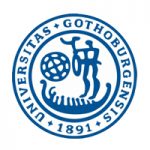项目介绍
Overview
We offer an outstanding research and teaching environment providing opportunities for graduate students to work with world-renowned researchers across a wide spectrum of topics. Our research focuses on understanding the psychological and biological bases of behaviour, to improve the health and wellbeing of both individuals and society. Research in the department includes behavioural neuroscience, perceptual and cognitive sciences and cognitive neuroscience. We host several research centres and institutes including the Deafness, Cognition and Language Research Centre, the Institute of Behavioural Neuroscience, and the Birkbeck/UCL Centre for Neuroimaging. Research facilities available to members of staff comprise state-of-the-art equipment for most types of behavioural research, scanning facilities (MRI), eye- and motion-tracking facilities as well as TMS facilities.
Research areas
- Behavioural neuroscience
- Cognitive neuroscience
- Sensory systems learning and memory
- Language
- Cognitive and decision-making
- Social cognition
More information can be found on the department website: Experimental Psychology MPhil/PhD
About this degree
Additional costs
For more information on additional costs for prospective students please go to our estimated cost of essential expenditure at Accommodation and living costs.
Accessibility
Details of the accessibility of UCL buildings can be obtained from AccessAble accessable.co.uk. Further information can also be obtained from the UCL Student Support & Wellbeing team.
Funding
Students entering the Experimental Psychology MPhil/PhD programme may be supported by a number of funding sources. Several departmental demonstratorships/teaching assistantships are available. UCL has been selected as a Doctoral Training Centre (DTC) by the Economic and Social Research Council (ESRC) and some students are supported by ESRC funded PhD studentships (UK/EU students only).
UCL also participates in similar DTCs such as those run by the BBSRC and MRC and the department hosts a number of students from each of these programmes. Finally, many researchers in the department have established collaborations outside industry, which help support several PhD studentships. Other sources of funding include the UCL Grand Challenges studentship programme, UCL Graduate Research Scholarships, UCL Overseas Research Scholarships, and the four-year Wellcome Scholarship.
For a comprehensive list of the funding opportunities available at UCL, including funding relevant to your nationality, please visit the Scholarships and Funding website.
Careers
Many students who complete a PhD in the department stay in academia, either going on to become postdoctoral researchers or research assistants, and ultimately professors. Some go on to further training in fields such as clinical psychology, educational psychology, consultancy or applied research. Others enter industry in consultant and professional roles. A PhD degree taken at UCL is recognised both nationally and internationally as a qualification of the highest status.
Employability
Experimental psychology provides a number of career pathways. Many of our former students progress into academic research as postdoctoral researchers, and ultimately become professors. Many instead expand their training into complementary fields such as clinical psychology, educational psychology, consultancy or applied research. One of the major benefits of studying in experimental psychology is the opportunity to form long-lasting connections with other students who follow these diverse career paths.
Networking
Experimental psychology PhD students take a prominent and active role in the department, including organising seminars, both independently and in concert with other academics and involving outstanding external guests. Our PhD students are leaders in the vibrant peer-led forums and yearly retreats that are supported by the UCL Division of Psychology and Language Sciences, and give presentations at high-profile national and international meetings. Additionally, they receive tailored career advice about a variety of fields, and the department has a strong history of research relationships with industry, NGO’s and government, providing abundant networking opportunities.
Why study this degree at UCL?
Experimental psychology students at UCL receive unparalleled training in the design, implementation and analysis of psychological and biological experiments. Our research is recognised internationally for sophisticated experimental design and statistical approaches to the analysis of human behaviour, and brain work. Students also benefit from embedded UCL research centres focusing on human brain imaging, brain stimulation, behavioural neuroscience, deafness and multi-modal communication. Our training and research environment allows students to work alongside elite academics and forge unique research agendas.
To find out more about Experimental Psychology’s MPhil/PhD programme please visit our website.
Department: Experimental Psychology
What our students and staff say
Staff review
“UCL is an intellectual hub for work in cognitive science and decision making. This excellence, paired with its central London location, makes UCL a magnet for top people from all over the globe. For a top university situated in an urban environment, the level of collegiality is outstanding.”
PROFESSOR BRADLEY LOVE
Cognitive and Decision Sciences MSc and Experimental Psychology MPhil/PhD
UCL Experimental PsychologyStudent review
“You read many papers as a PhD student, and its surreal, slightly nerve-wracking, and wonderful, to meet the scientists who wrote them face-to-face. I have been able to do this through attending a number of academic conferences, e.g. recently in Budapest, Hungary; and Spiez, Switzerland. During my PhD, I also spent two-months working at the Center for Open Science in Virginia, USA, and met a diverse group of scientists, statisticians and computer developers, all working to improve scientific methodology.”
TOM HARDWICKE
Experimental Psychology PhD
Application and next steps
Applications
Students are advised to apply as early as possible due to competition for places. Those applying for scholarship funding (particularly overseas applicants) should take note of application deadlines.
This programme requires two references. Further information regarding references can be found in our How to apply section.
Application deadlines
All applicants30 July 2021
Applications for competitive departmental funding or otherwise awarded by UCL must arrive in January in the year you wish to start. Please contact potential supervisors and the department before January to discuss application procedures and deadlines. If other sources of funding are being considered, it is still in your interest to apply by the January deadline, but later applications can sometimes be considered. Applications should be made as soon as possible, up to 12 months in advance of the start date and not later than 30 June for September/October entry.
For more information see our Applications page.
录取要求
-
Normally a minimum of an upper second-class UK Bachelors degree or a taught UK Master’s degree, or the overseas equivalent, in a relevant subject. Overseas applicants also need to satisfy the English language requirements.
联系方式
电话: +44 (0) 20 7679 2000相关项目推荐
KD博士实时收录全球顶尖院校的博士项目,总有一个项目等着你!






